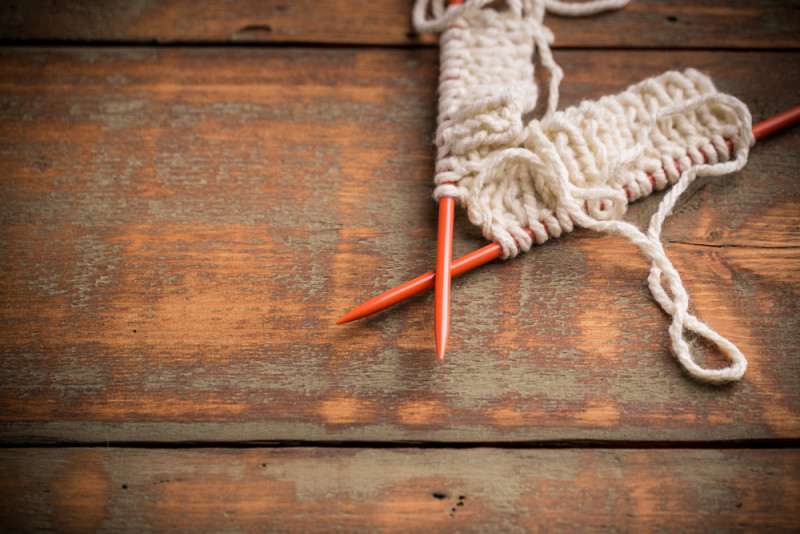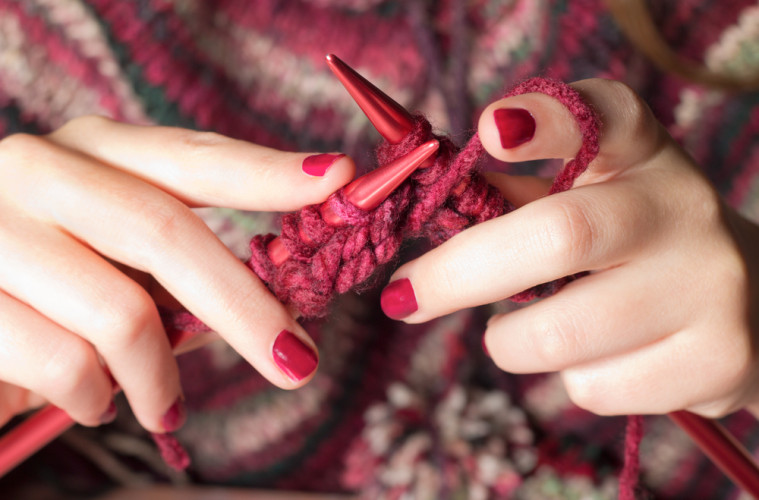We all have our hobbies, the things we like to do to de-stress after a long day, to unwind and indulge in something we really enjoy. If you’ve never tried knitting, the results of this study may just be enough to convince you to take up the habit.
Knitting therapist Betsan Corkhill surveyed 3,545 knitters, and more than half of them said they felt “very happy” after knitting. Many of them stated that they knitted specifically for relaxation and stress relief, and those who knitted more frequently reported more mental and emotional relief than those who did it less frequently – they reported feeling calmer, happier, less sad, less anxious and more confident.
Crafting with friends can aid in mind and brain wellness by improving problem-solving and mindfulness and helping in the development of hand-eye coordination and spatial awareness. It can also give you a sense of pride and achievement, teach you patience and perseverance, encourage active creativity, and facilitate memory formation and retrieval.
Corkhill’s study concluded, “Knitting has a significant psychological and social benefits, which can contribute to well-being and quality of life.” An interesting add-on from the study was that it found people who knitted as part of a group were even happier than people who knitted solo.
Corkhill explained, “Using knitting to achieve a meditative state of mind could enable a much wider population to experience the benefits of meditation, as it does not entail having to understand, accept or engage in a prolonged learning period of the practice. It happens as a natural side-effect of knitting.”
Some have even referred to knitting as the “new yoga.” Research shows that knitting and other forms of crafting including sewing, weaving and crocheting have a lot in common with mindfulness and meditation. They are also reported to have a positive impact on mind health and well-being.

The good news: if knitting is not your thing, these great effects are not just limited to a piece of thread and a needle. Neuroscientists have been studying other forms of creativity and finding that activities like cooking, drawing, photography, art, music, cake decorating and even doing crossword puzzles are beneficial to your health.

When we are being creative, our brains release dopamine, which is a natural anti-depressant. Creativity usually takes sincere concentration, and it can lead to the feeling of a natural high. Many scientists believe there is a link between creative activities and the ability to reduce cognitive impairment associated with aging. Participating in creative activities may even help to alleviate depression.
Think about the time you spend doing something creative that you love – maybe it is reading, cross stitching, taking pictures or creating a scrapbook – doesn’t it always make you feel great? Taking the time to activate your creativity and do something that you enjoy allows you time to de-stress and relax while feeling great because you are doing something you love. Research shows that creative practices improve depression, anxiety and coping skills while enhancing the quality of life and significantly reducing stress – all vital for maintaining brain health and well-being.
So what do you think? Want to try knitting?

No comments:
Post a Comment